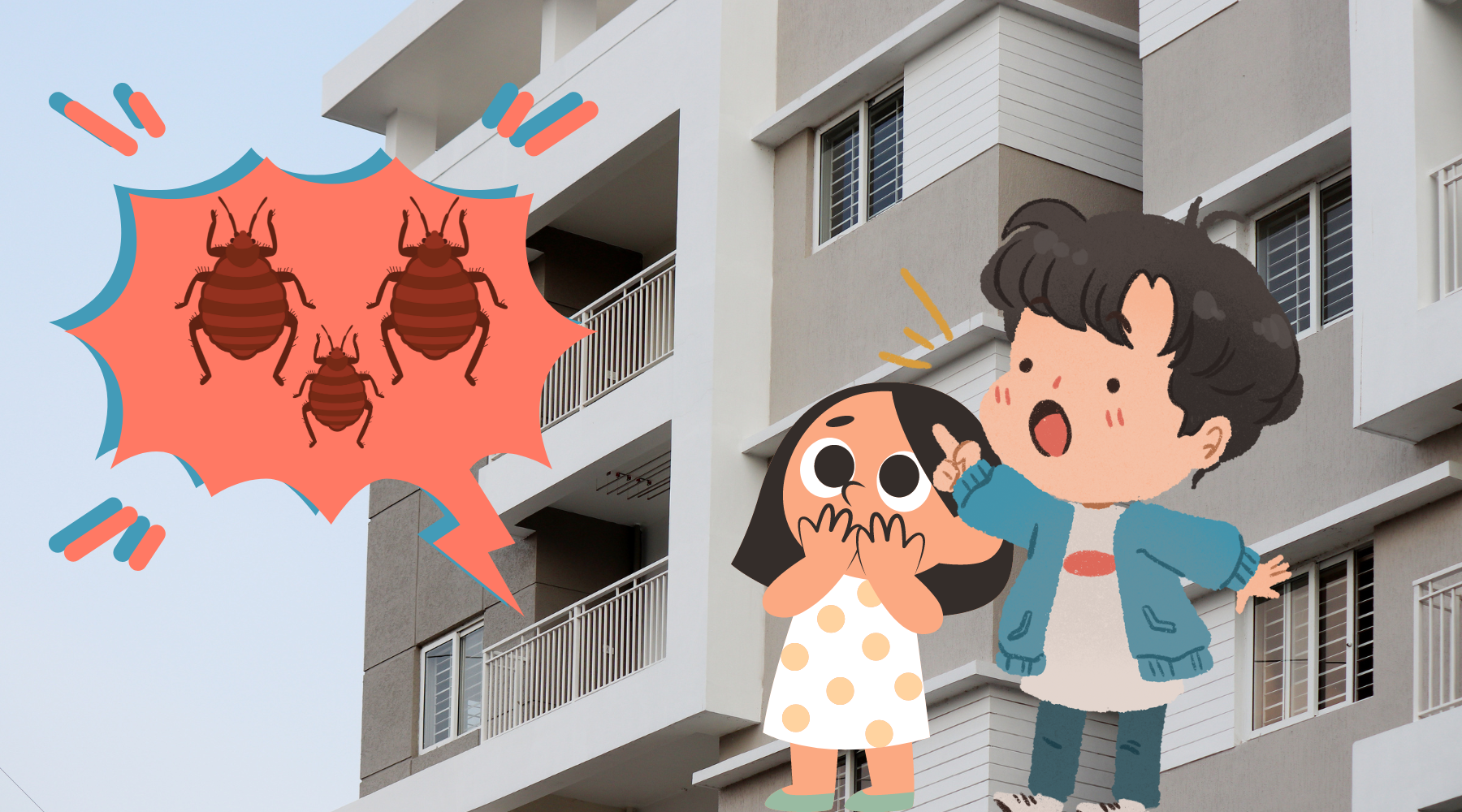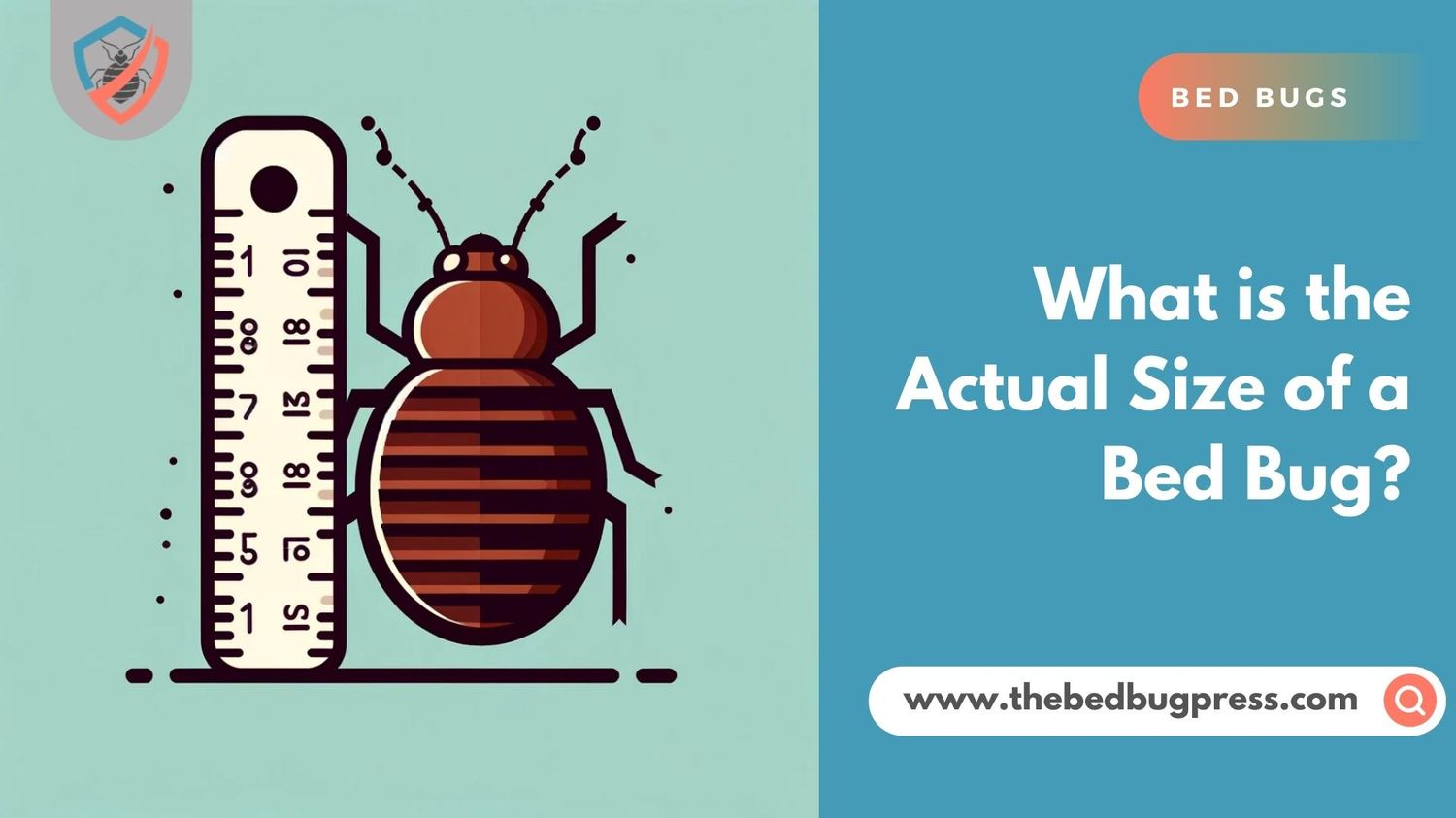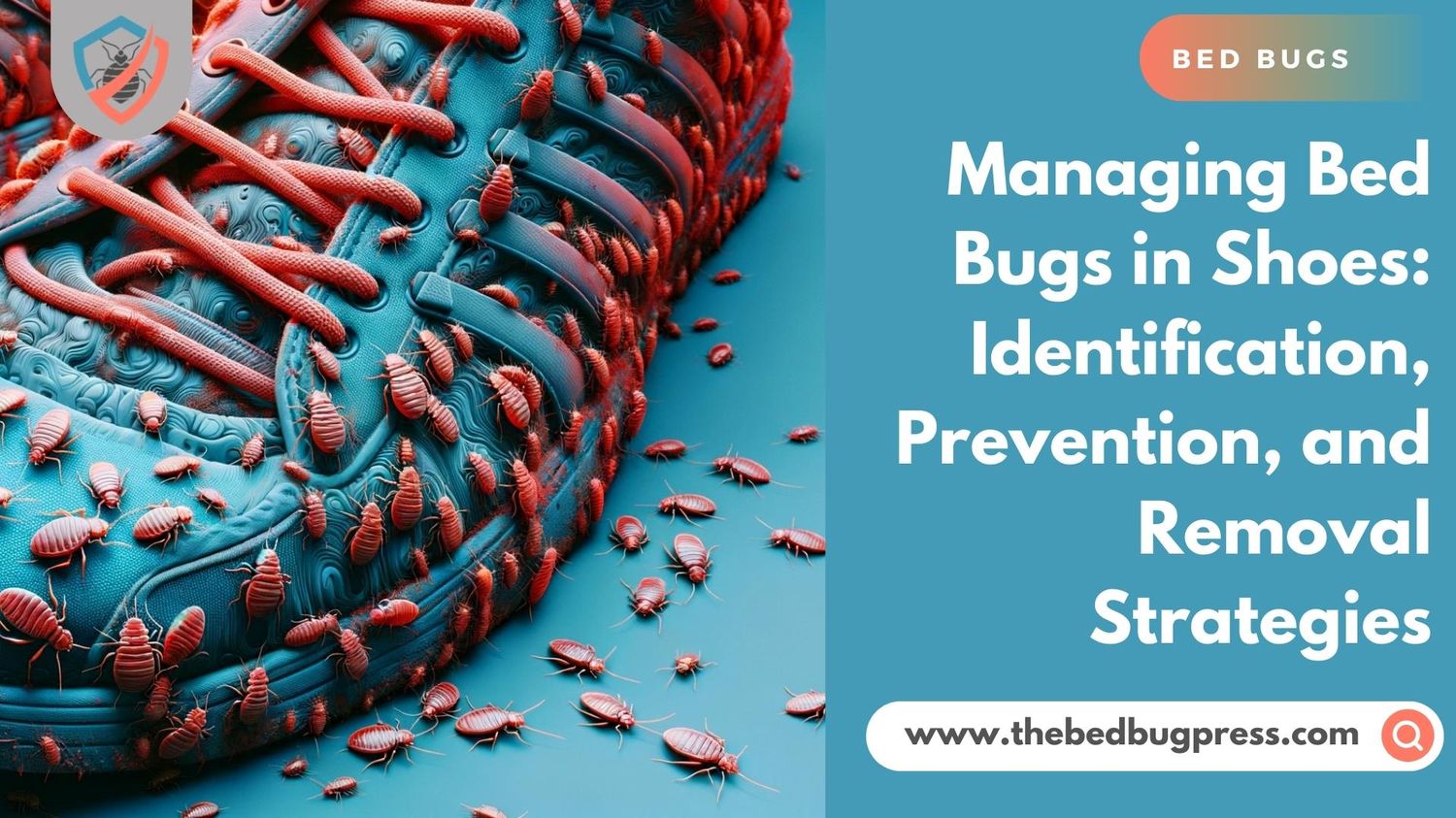Bed bugs are unwanted guests in any habitable places including apartment buildings. They are about the size of apple seeds, but cause a huge nuisance and wreak havoc simply because bed bug infestations, as well as bed bugs, are difficult to deal with.
These insects spread easily and are among the most difficult pests to remove especially in multi-family buildings. If you are currently residing in an apartment and worried about getting a possible infestation from adjacent apartments, then you should be more informed about how bed bugs spread in apartments. You must know what to do once you notice their presence on your property or in surrounding apartments.
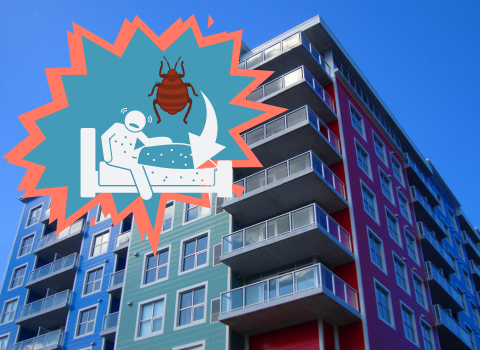
Is It Possible for Bed Bugs to Spread in Multi-Unit Buildings?
Bed bugs spread quickly and are found in places where people sleep because these are areas where they can feed without being noticed. With apartment complexes, bed bugs can turn into a big problem as several units can be infested in a short period. They can reach surrounding units through floors, ceilings, and walls.
Below are other ways how they can move to other rooms or units:
Human Movement
Human movement is one of the primary ways for bed bugs to spread, especially in apartment buildings. As people move from several units, the chance of carrying bed bugs, as well as bed bugs eggs around, is higher.
Movement Through Belongings
Bed bugs can travel on used upholstered furniture, clothing, and other personal belongings. This allows these insects to move easily from one infested unit to another unit. Aside from infested items, they can also travel through electrical outlets, electrical wires, light switches, and plumbing pipes.
Common Areas
Among the common spots where bed bugs can spread is shared spaces inside the apartment building. Shared areas such as lobbies, laundry rooms, and hallways can all turn into breeding grounds for bed bugs.
Aside from these areas, bed bugs can also move through different units through cracks and crevices. This allows them to continue establishing new colonies around the building.
Preventing Bed Bugs from Spreading in Multi-Unit Buildings
It is possible to prevent the spread of bed bugs in multi-unit buildings, especially when the property management and the residents take preventative measures seriously. Some of these measures are:
Conduct Regular Inspections
This step helps in early identification and early detection of bed bug infestations. This also allows prompt treatment.
Report Any Signs of Bed Bugs
Residents must be encouraged to immediately report to property management as soon as signs of bed bugs such as bloodstains or bed bug bites are noticed.
Shared Areas Must be Cleaned Regularly
Common areas or shared spaces must be cleaned and inspected regularly to prevent clutter and debris from building up. Not doing so will give the bed bugs more breeding grounds and hiding places.
Act Immediately
Once a bed bug infestation is confirmed, thorough and prompt treatment must be done. All heavily infested areas should be inspected and necessary treatment must be done simultaneously. Simultaneous treatments increase the chance of bed bug prevention and at the same time guarantee the results in trying to get rid of bed bugs.
Given that bed bugs can easily spread in multi-unit buildings, both residents and management must take prevention and treatment seriously. By taking proactive measures and responding quickly to infestations, it is possible to limit the spread of bed bugs and keep multi-unit buildings bed-bug-free.
Managing Bed Bugs in Multi-Unit Properties
The maintenance of multi-unit buildings only becomes more difficult when a bed bug infestation starts. They do not only spread quickly but are also difficult to detect. It is also hard to get rid of bed bugs.
Though these are all true, there are some things that you can do for managing the bed bugs infestations and be able to control bed bugs before the infestations get worse.
Below are some of the effective strategies you can do to manage bed bugs in apartment buildings:
Educate All Residents:
Among the crucial steps in managing bed bugs in apartment buildings is educating residents about bed bug prevention and identification of a suspected bed bug problem. Residents must be provided with basic information regarding what bed bugs look like, how they initially spread, and when they should report. The management must encourage them to regularly inspect their units and immediately report to them once signs of bed bugs are noticed.
Schedule Regular Inspections:
Regular inspection help in the early detection of bed bugs. Once units become vacant, the management must inspect them thoroughly. This must be done not only in vacant or recently vacated units but also in occupied ones, especially other rooms that are considered high-risk areas.
Implement a Bed Bug Management Plan:
Apartment buildings must develop a bed bug management plan that outlines the important steps that must be taken if ever an infestation is detected. The plan must come with certain protocols that include inspections, treatments, and pos treatment visits. This should also include a communication plan with residents.
Work with Pest Control Professionals:
Controlling bed bugs is difficult, but working with professionals that can provide valuable expertise and resources for managing bed bugs in multi-unit properties is highly recommended. They can conduct inspections, provide treatment options, and help develop and implement a bed bug management plan. Treating bed bugs will be easier when done with experienced and knowledgeable people.
Encourage Resident Cooperation:
Bed bug management in multi-unit properties requires cooperation from all residents. Encourage them to follow prevention guidelines, such as avoiding secondhand furniture and regularly inspecting their units. Communicate regularly with residents about the importance of reporting signs of bed bugs promptly.
It is indeed a challenging task to manage bed bugs in apartment complexes. However, with the right strategies, it is possible to prevent and kill bed bugs effectively. Following the abovementioned strategies, the risk of having bed bug infestations in apartments will be minimized and ensure residents of a safe and comfortable living area.
Compensation Options for Bed Bug Victims
Any victim can experience emotional and physical distress from bed bugs. Aside from the physical distress from bed bug bites, bed bugs can also cause victims to experience sleep disturbances and anxiety. If you are suffering from a bed bug problem, you may have thought of the compensation options available for you.
Seeking Reimbursement for the Costs of Treating Bed Bugs
One of the compensation options that bed bug victims can get is reimbursement for the costs of the treatment used for bed bugs. The costs may include hiring of a pest control professional or pest control services for treating your home or belongings.
This may also include the costs of replacing infested items that were discarded or damaged due to the bed bug infestation. Always remember that there are insurance policies that can cover bed bug treatment costs. See to it that you can ask your provider about this.
Seek Damages for Both Physical and Emotional Harm
Another option you can get is seeking damages for any emotional and physical harm because of the infestation. This may include the compensation for medical expenses you incurred when treating bed bug bites or the damages for suffering, pain, and emotional distress. Just remember that the number of damages that may be awarded will depend mainly on some factors like the duration of the infestation, its severity, and the overall impact of the bed bug infestation on your life.
Seeking Compensation from Landlord
Living in a rental property also gives you the legal option to seek compensation for a bed bug infestation. It is the responsibility of the landlords to provide habitable and safe living conditions to their renters. Failure to do so will be considered as a breach of their duty. There are cases where tenants can sue their landlord for the damages incurred from a bed bug infestation.
Reminder!!!
It’s important to note that compensation options for bed bug victims can vary depending on the specific circumstances of the infestation. Try to consult with a qualified attorney who has experience with bed bug cases to discuss your options and determine the best course of action.
If you have been a victim of a bed bug infestation, it’s important to explore your options for seeking compensation and holding responsible parties accountable for their actions.
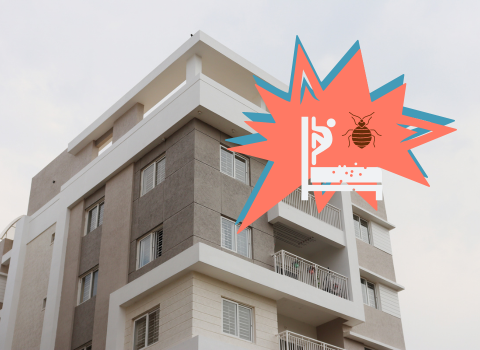
Solutions for Apartment Dwellers Facing Bed Bug Problems
There are several solutions you can consider when trying to eradicate bed bugs and prevent future infestations. These solutions are as follows:
Notify the Landlord
It is important for apartment dwellers to notify the landlord or the property manager immediately when facing bed bug problems. Renters may not know it, but they may have a protocol in place for addressing the bed bug infestations. As renters, it is important to follow their instructions to help prevent the spread of bed bugs from a nearby infested apartment to your apartment unit. In addition, your landlord may be responsible for covering the cost of bed bug treatments. So, make it a point to ask about this option.
Hire a Pest Control Professional
Hiring a professional pest control company is another option for you. Given that it is difficult to get rid of bed bugs, make sure that you choose a company with experience in treating bed bug infestations. A combination of treatments can be used by the pest control company which may include heat or chemical treatments, to eliminate the pests.
Try DIY Bed Bug Treatments
If there is a mild infestation going on, you can resort to the use of DIY methods. Some of these methods may include but are not limited to regular vacuuming, sealing cracks and crevices, and the use of bed bug interceptors for trapping bed bugs.
Just keep in mind that DIY methods do not guarantee immediate results, especially with severe infestations. It is always recommended that you consult professionals.
By taking proactive measures and seeking help when needed, it’s possible to eliminate bed bugs and enjoy a pest-free living space.
The Role of Property Managers in Bed Bug Control
When it comes to maintaining a multi-unit apartment building, property managers play an important role in bed bug control. As the person responsible for maintaining the building and ensuring the safety and well-being of tenants, property managers must take proactive steps to prevent and address a bed bug infestation.
Educating Residents
One of the primary roles of property managers in bed bug control is education. Property managers should be the ones educating tenants on identifying bed bugs and the first signs of an infestation. Educating should also include the prevention of spreading bed bugs between units. They can also provide resources for tenants, like informational materials, or give them access to pest control services.
Address a Bed Bug Problem Immediately
Property managers should also have a protocol for addressing bed bug infestations. The protocol may include inspection of units for bed bugs, notifying tenants of an infestation, and coordination with pest control companies to treat the infested apartment before the problem spreads. Property managers should also have a plan for monitoring and preventing future infestations.
Implement Preventative Measures against Bed Bugs
In addition, property managers can take preventative measures to reduce the risk of bed bug infestations. This may include regular inspections of units, sealing cracks and crevices where bed bugs may enter, and using bedbug-proof mattresses and box spring covers. Property managers may also consider implementing policies around the disposal of infested furniture and other items.
Communicate with Tenants
Property managers need to work closely with tenants to address bed bug problems. This may involve communicating with tenants about bed bug treatments, providing guidelines for preparing for treatments, and following up with tenants to ensure the infestation has been eliminated.
Tenant Responsibilities in Preventing and Managing Bed Bugs
Preventing and managing bed bug infestations is a shared responsibility between property managers and you. We want to provide some friendly tips on how you can do your part to keep these pesky bugs at bay and minimize their impact in your units. Here are some things you can do:
Maintain a Clean-Living Space
It’s essential to keep your living space clean and free from clutter. By doing so, you make it harder for bed bugs to hide in those sneaky hiding spots. Regular cleaning and decluttering will go a long way.
Learn to Prevent Bed Bugs from Entering
Taking proactive steps to prevent bed bugs from entering your unit is crucial. You can start by sealing any cracks and crevices where they might sneak in. Consider using bedbug-proof mattresses and box spring covers. Also, be cautious when bringing used furniture or items into your unit. Make sure to thoroughly inspect them before bringing them in.
Report a Suspected Bed Bug Infestation Immediately
If you suspect a bed bug problem in your unit, don’t hesitate to reach out to your property manager or landlord right away. Timely reporting is essential because delaying treatment can allow the infestation to spread, making it more challenging and costly to eliminate. By acting promptly, you can help nip the problem in the bud.
Cooperate with Pest Control Companies
If your unit requires professional treatment, it’s important to cooperate with the pest control company. They may ask you to prepare your unit by removing clutter, laundering bedding and clothing, and temporarily vacating the unit during treatment. By following their instructions, you’ll help ensure effective and efficient pest control measures.
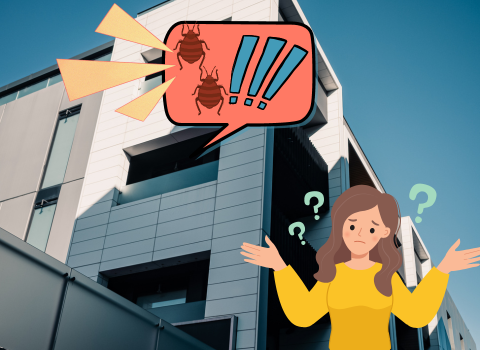
Assessing the Risk of Bed Bugs After a Neighbor’s Infestation
Dealing with the risk of bed bugs after a neighbor’s infestation can be worrisome. But don’t worry, we’ve got your back. Here are some friendly steps you can take to assess the risk and prevent those pesky bed bugs from invading your apartment:
Step 1
Take some time to inspect your apartment carefully for any signs of bed bugs. Check your bedding, furniture, and clothing for small rust-colored stains, shed skins, or even live bed bugs. If you happen to come across any of these signs, it’s crucial to report them to your property manager or landlord right away. We’ll jump into action to address the issue promptly.
Step 2
Even if you don’t spot any signs of bed bugs during your inspection, it’s always a good idea to be proactive in preventing an infestation. Seal any cracks or gaps in your apartment with caulk or sealants to create a barrier. Consider using bed bug-proof mattresses and box spring covers for added protection. And don’t forget to vacuum regularly to eliminate any potential hiding spots for those sneaky bugs.
Step 3
If you’re bringing used items into your apartment, like furniture or clothing, it’s important to inspect them thoroughly before bringing them inside. Look for any signs of bed bugs and treat them appropriately, just to be on the safe side. We want to make sure those unwelcome visitors don’t hitch a ride into your cozy space.
Step 4
Stay connected with your property manager or landlord. They can provide valuable information about the neighbor’s infestation, including the extent of it, the treatment plan used, and any precautions you should take to prevent the spread of bed bugs. We’re all in this together, and sharing information is key.
Step 5
In some cases, it might be necessary to have your apartment treated for bed bugs as a preventive measure. Don’t worry, your property manager or landlord will guide you on the best course of action and make arrangements for treatment if needed. We want to nip any potential problems in the bud.

